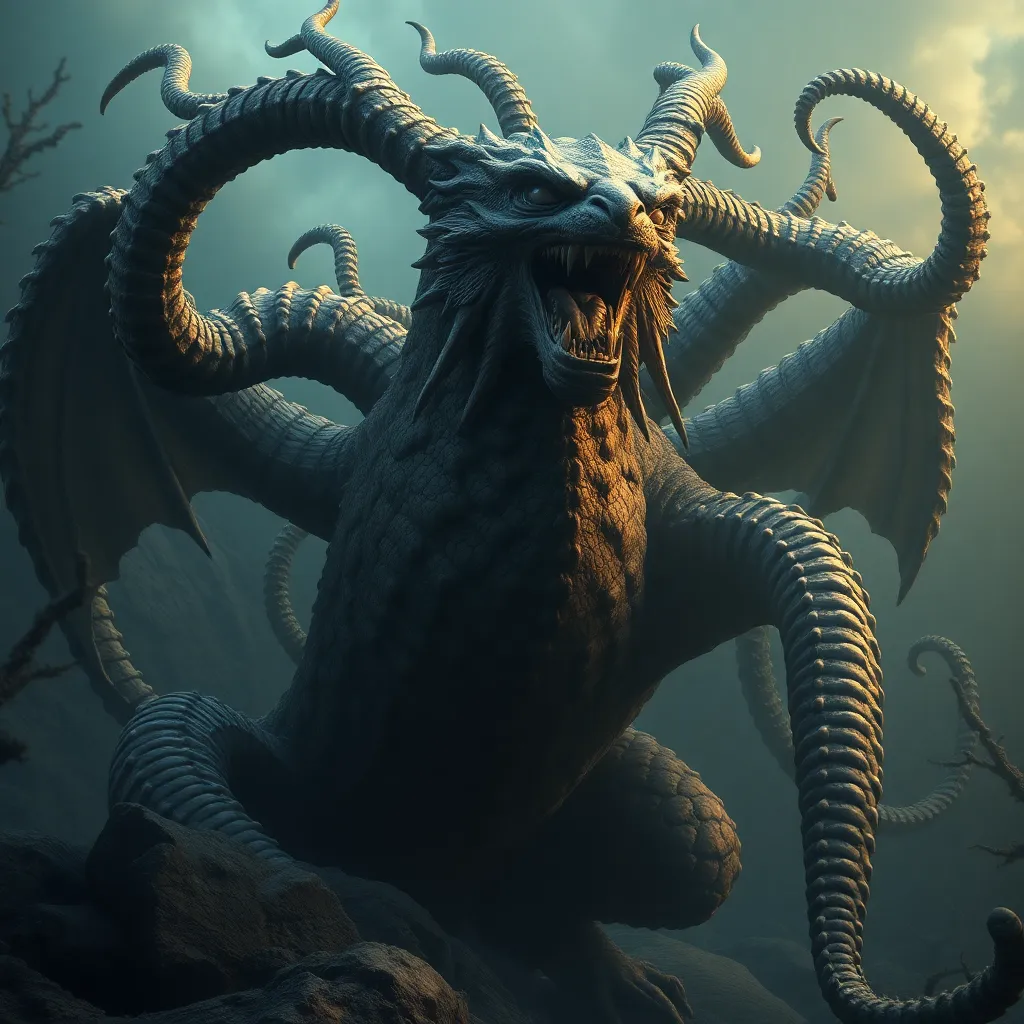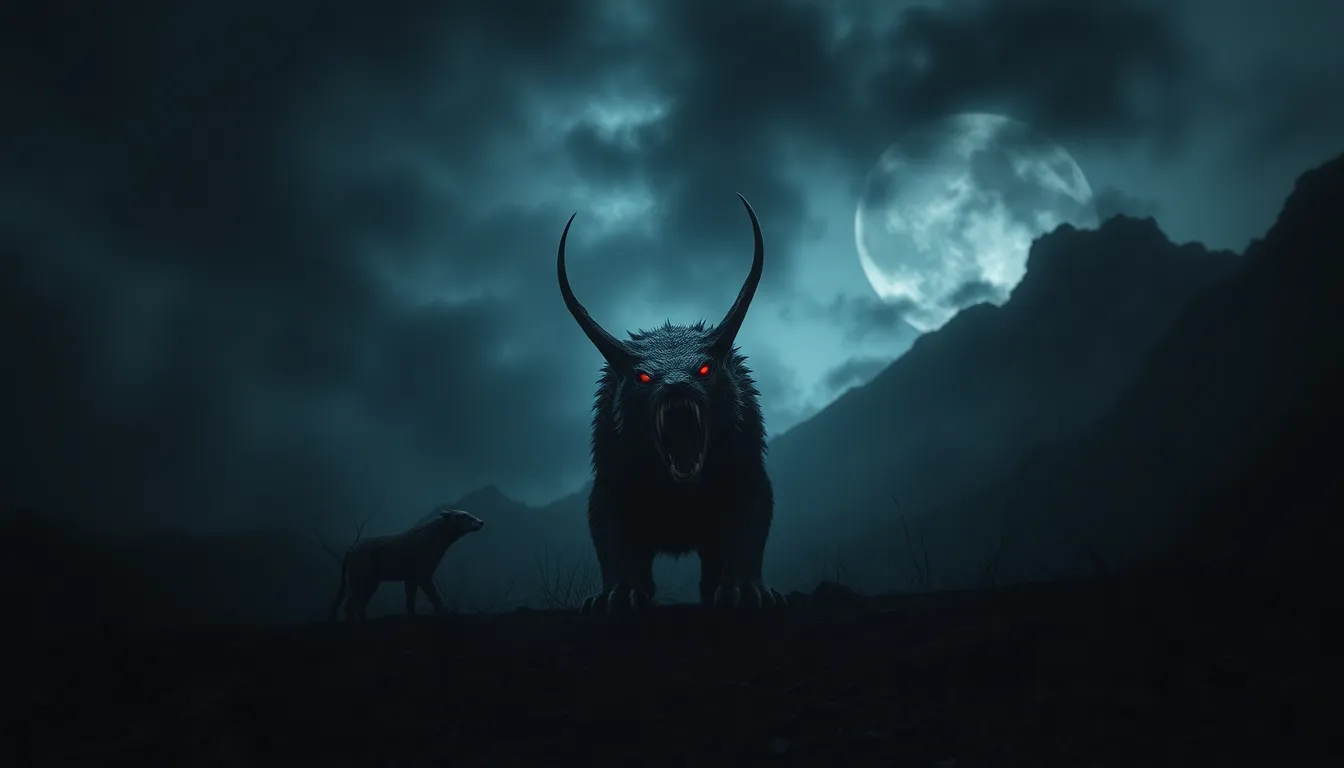The Hydra’s Fear: Examining the Monster’s Psychological Impact on Ancient People
I. Introduction
The Hydra, a serpentine creature from Greek mythology, has captured the imagination of many through its terrifying presence and complex symbolism. Often depicted with multiple heads, the Hydra is not just a beast to be vanquished but a rich symbol of the fears and challenges faced by ancient people. Monsters, such as the Hydra, played a significant role in various ancient cultures, often representing the darker aspects of human existence and societal anxieties. This article will explore the Hydra’s symbolism and its psychological impact on ancient people, revealing how fear manifests through mythological narratives.
II. The Hydra in Mythology
The Hydra is best known from the myth of Hercules, specifically his Second Labor. Described as a massive serpent-like creature with numerous heads—each time one was cut off, two more would grow back—the Hydra embodies the idea of a problem that multiplies when confronted. According to myth, Hercules was tasked with slaying the creature, located in the swamps of Lerna, which had terrorized the surrounding areas.
In addition to its role in Hercules’ labors, the Hydra held significant cultural importance in ancient Greek lore. It represented the challenges and fears inherent in human existence, illustrating the struggle against chaos and the unknown. The Hydra’s characteristics—its regenerative ability and its poisonous breath—further emphasized its role as a formidable foe, one that could not be easily defeated.
III. The Concept of Fear in Ancient Societies
Fear is a fundamental aspect of the human experience, and in ancient societies, it was often personified through monsters. These creatures served as embodiments of societal fears, representing chaos, death, and the unknown. The Hydra, with its many heads, symbolizes the overwhelming nature of such fears, suggesting that confronting one issue may lead to the emergence of others.
- Understanding fear: Ancient civilizations often interpreted fear as a divine message or a natural response to threats.
- Monsters shaping societal fears: Creatures like the Hydra helped explain the inexplicable, providing a narrative framework for understanding danger.
- Chaos and the unknown: The Hydra’s presence in mythology signifies the inherent unpredictability of life.
IV. Psychological Analysis of the Hydra
The Hydra can be viewed as a metaphor for internal struggles and the psychological battles individuals face. Its regenerative ability evokes a profound sense of anxiety, as it symbolizes the fear of multiplicity—how one problem can lead to many more. This aspect of the Hydra speaks to the human experience of feeling overwhelmed by challenges that seem to multiply rather than diminish.
- Internal struggles: The Hydra mirrors the conflict within individuals, representing their fears and insecurities.
- Fear of multiplicity: The idea that addressing a single issue may lead to the emergence of new ones is central to understanding the psychological impact of the Hydra.
- Anxiety from regeneration: The Hydra’s ability to regenerate is a powerful symbol of anxiety, suggesting that some challenges are never truly defeated.
V. The Hydra’s Influence on Art and Literature
The Hydra has been a frequent subject in ancient art and literature, reflecting its significance in culture and psychology. Artistic representations of the Hydra often emphasize its terrifying nature and the heroism required to confront it. Sculptures and pottery from ancient Greece depict scenes of Hercules battling the beast, highlighting the struggle between man and monster.
In literature, the Hydra serves as a motif for various themes, such as the struggle against adversity and the nature of fear. From ancient texts to modern retellings, the Hydra’s story has evolved, yet its psychological implications remain relevant.
- Depictions in art: The Hydra can be seen in ancient pottery, reliefs, and sculptures, often symbolizing struggle and heroism.
- Representation in literature: The Hydra appears in various literary forms, reinforcing its role as a symbol of fear and challenge.
- Artistic interpretations: The ways in which artists interpret the Hydra reveal deeper psychological themes related to humanity’s struggle with fear.
VI. The Hydra’s Legacy in Modern Culture
The Hydra’s influence extends beyond ancient mythology into contemporary media, where it continues to symbolize fear and chaos. Modern adaptations in films, books, and video games often draw on the Hydra’s characteristics, using it as a metaphor for modern struggles.
Psychological themes associated with the Hydra—such as the fear of facing overwhelming challenges—persist in modern storytelling. The creature serves as a reminder of the chaos that can arise in life, emphasizing the importance of resilience and courage.
- Contemporary media: The Hydra appears in various forms, from movies to video games, adapting to modern fears and challenges.
- Psychological themes: The enduring symbol of the Hydra resonates with contemporary audiences, reflecting ongoing struggles with fear and adversity.
- Relevance of the Hydra: The Hydra remains a powerful symbol in popular culture, illustrating the timeless nature of fear and chaos.
VII. Comparative Analysis with Other Mythical Creatures
When analyzing the Hydra, it is essential to consider its similarities and differences with other mythical creatures, such as Cerberus and the Chimera. Each of these creatures embodies unique psychological impacts and cultural interpretations, contributing to their significance in mythology.
- Similarities: Like the Hydra, creatures such as Cerberus represent chaos and fear, often serving as guardians of the underworld.
- Differences: While the Hydra symbolizes multiplicity and regeneration, other monsters may represent different aspects of fear, such as confinement or death.
- Broader context: The Hydra’s role in mythology highlights the diverse ways cultures understand and interpret fear through monsters.
VIII. Conclusion
In summary, the Hydra holds significant psychological importance, representing the multifaceted nature of fear and chaos. Its enduring presence in art, literature, and modern culture reflects humanity’s fascination with monsters and the deeper meanings they convey. The Hydra serves as a powerful symbol, shaping our understanding of fear and the challenges we face throughout life.
As we continue to explore the legacy of monsters like the Hydra, we gain insight into the complexities of human emotions and the timeless nature of our fears. The Hydra’s story remains relevant, reminding us that the monsters we confront—whether in mythology or in our own lives—are often reflections of our internal struggles.




